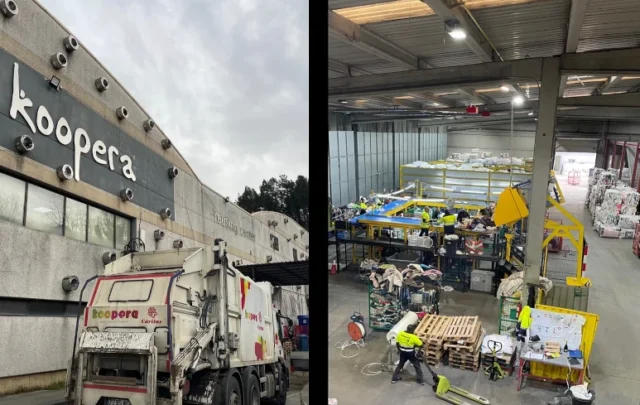
Shell’s Arctic voyage marks beginning of peak oil era
Andrew Critchlow, The Daily Telegraph
Anglo-Dutch company’s search for resources in the Arctic is a sign that the world is running out of options for new oil reserves…
Saudi Arabia’s crude export record could be near-term peak
Tamsin Carlisle, Platts
Saudi Arabia’s recent push to maintain international oil market share saw its oil exports surging in March, but the kingdom may find itself unable to maintain much upward momentum in the coming months.
The latest official data from the Riyadh-headquartered Joint Organizations Data Initiative or JODI, published Monday, May 18 showed that Saudi crude exports rose by 548,000 b/d in March to 7.898 million — their highest level in over a decade.
However, March is the last month of the Arabian Peninsula’s cooler season, with maximum daytime temperatures in Riyadh still averaging below 30 degrees Celsius…
The last oil spill in Santa Barbara helped birth environmentalism. What will this one do?
Brad Plumer, Vox
On Wednesday, California Governor Jerry Brown declared a state of emergency after an underground oil pipeline ruptured along the south coast of Santa Barbara, California. The pipeline may have leaked up to 105,000 gallons of oil, potentially menacing nearby beaches and wildlife.
Clean-up crews are now laying down booms in the ocean to keep the oil from spreading. Officials have found two slicks along the coast, plus two pelicans covered in crude. The area is also home to two endangered bird species — the snowy plover and the least tern…
Fossil fuels subsidised by $10m a minute, says IMF
Damian Carrington, The Guardian
Fossil fuel companies are benefitting from global subsidies of $5.3tn (£3.4tn) a year, equivalent to $10m a minute every day, according to a startling new estimate by the International Monetary Fund.
The IMF calls the revelation “shocking” and says the figure is an “extremely robust” estimate of the true cost of fossil fuels. The $5.3tn subsidy estimated for 2015 is greater than the total health spending of all the world’s governments…
Chinese warnings to U.S. plane hint of rising stakes over disputed islands
Simon Denyer, Washington Post
The Chinese navy repeatedly warned a U.S. surveillance plane to leave airspace around disputed islands in the South China Sea, a sign that Beijing may seek to create a military exclusion zone in a move that could heighten regional tensions…
China claims sovereignty over more than 80 percent of the South China Sea. Rival claimants to islands and reefs — set amid fertile fishing grounds and potentially oil- and gas-rich waters — include the Philippines, Vietnam, Taiwan, Malaysia and Brunei…
Study Links Dolphin Deaths to Deepwater Horizon Oil Spill
Nicholas St. Fleur, New York Times
Lung and adrenal lesions found in dead bottlenose dolphins stranded along the Gulf of Mexico between June 2010 and December 2012 are consistent with the types of damage that marine mammals sustain from exposure to petroleum products after an oil spill, according to a new study published on Wednesday by researchers from the National Oceanic and Atmospheric Administration.
The findings are the latest results from the Deepwater Horizon National Resource Damage Assessment, an ongoing investigation by NOAA into the spill, the largest offshore oil spill in United States history. Combined with previous studies by the agency, this paper provides additional support to a link between the Deepwater Horizon oil spill in 2010 and mass dolphin deaths in Alabama, Louisiana and Mississippi…
Al-Naimi sees eventual end of fossil fuels
Arab News
Petroleum and Mineral Resources Minister Ali Al-Naimi said on Thursday the Kingdom envisaged the fact that fossil fuels could become unnecessary before the middle of the century and was investing in renewable energy for that reason.
“In Saudi Arabia, we recognize that eventually, one of these days, we are not going to need fossil fuels, I don’t know when, in 2040, 2050… so we have embarked on a program to develop solar energy,” he told the Business and Climate conference in Paris…
China coal use falls: How the world’s largest polluter reduced its emissions
Lauri Myllyvirta, Greenpeace Energy Desk
Earlier this week Energydesk revealed that China’s coal use has fallen by nearly 8% so far this year — taking CO2 emissions down 5% with it.
China’s industrial output numbers for the first four months of 2015 shows the size of the shift from high-CO2 to cleaner forms of industrial production.
While industrial value added actually grew 6% from January to April, coal output fell by 6.1% and power generation from coal, gas and other thermal plants fell by 3.5%…
The awful truth about climate change no one wants to admit
David Roberts, Vox
There has always been an odd tenor to discussions among climate scientists, policy wonks, and politicians, a passive-aggressive quality, and I think it can be traced to the fact that everyone involved has to dance around the obvious truth, at risk of losing their status and influence. The obvious truth about global warming is this: barring miracles, humanity is in for some awful shit.
Here is a plotting of dozens of climate modeling scenarios out to 2100, from the IPCC…
Is it possible in models? Yes. Is it possible IRL? Climate modeler Glen Peters doesn’t think so:
Limiting global warming to 1.5C is still possible, say scientists
Simon Evans, Carbon Brief
It’s still technically possible to limit global warming to below 1.5C this century, according to new research published in Nature Climate Change.
Only a small window of opportunity remains open, the study says – and it is closing rapidly. Global carbon pricing or its equivalent should have been implemented already and must certainly be in place by 2020. The world would then need to become carbon neutral by mid-century.
The new study pitches into a live and vociferous debate over whether the world should be aiming to limit warming to 1.5C or 2C, and whether either target remains achievable. Carbon Brief puts the new study’s findings in context…
The rise and rise of the fossil fuel divestment movement
Emma Howard, The Guardian
As Oxford University rules out investing in coal and tar sands, more than 220 institutions have now committed to divesting since the climate campaign launched in 2012…
Since McKibben’s climate movement 350.org launched its fossil fuel divestment campaign in 2012, more than 220 institutions – including universities, faith organisations, local authorities, pension funds and foundations – have committed to divesting from fossil fuels…
India: No place for dissent in world’s biggest democracy
Avik Roy, RTCC
“You can’t muzzle dissent in a democracy”, said the Delhi High Court while delivering a verdict against the federal government’s attitude towards civil society.
But this is what green campaigners say India’s government led by prime minister Narendra Modi aims to do — stifle the voices that speak a language different from that of the state.
On April 9 the federal government blocked foreign funding to Greenpeace India with immediate effect by suspending its licence for six months and served a notice to it asking why its registration should not be cancelled…
What Every Country Can Learn From Ecuador
Ryan Koronowski, Climate Progress
On Saturday, in often sweltering heat, more than 44,000 people in Ecuador reportedly sowed their way into the Guinness Book of World Records by planting 647,250 trees of over 200 species in one day. The effort was organized by the Ecuadoran government under an initiative called “Siembratón.”
Ecuador’s record was set based on the number of species of trees planted. “There is no record in history of similar events involving over 150 species,” a Guinness Records adjudicator told AFP.
Volunteers reportedly sowed an estimated 216 species of trees across some 2,000 hectares of land in 150 locations ranging from the Pacific coastal region to the Amazonian basin to the high Andean mountains. The diverse climatic terrain likely helped in the small country plant so many different species. Trees included alder, wild cherry, willow, cedar, rosemary, lignum vitae, myrtle, podocarpus, carob, cholan, laurel silk guarando, eugenia, mahogany, paper tree, walnut, fig tree and arabisco…
Why A Philadelphia Grocery Chain Is Thriving In Food Deserts
Maanvi Singh, PBS
When Jeff Brown opened his first grocery store in a low-income neighborhood in Philadelphia back in 2004, it seemed like a long shot.
Most people thought he was crazy to even attempt to make money in a food desert like Southwest Philly, he says. Other grocers had tried and quickly gone out of business.
But Brown – a fourth generation grocer whose company, Brown’s Super Stores, is part of the larger ShopRite franchise — tried a different approach: "Before we did anything, we brought together a group of community leaders, and we just asked them to tell us exactly what it is they were looking for in a neighborhood grocery store," he tells The Salt.
It worked: Brown’s company now operates seven profitable supermarkets in low-income neighborhoods in and around Philadelphia. Along the way, he’s learned a thing or two about what it takes to change shopping and eating habits in food deserts…
How Should Economics be Taught?
Vincent Navarro, Counterpunch
Vincent Navarro is currently a professor and the director of the Public Policy program both at University Pompeu Fabra and John Hopkins University. Being one of the most internationally cited researchers in the field of social sciences, Vincent Navarro is an economist, political theorist and sociologist who has been widely recognized for challenging neoliberal approaches to the study of economics. Together with professor Juan Torres, he is the author of the controversial electoral program put forward by Podemos, where they advocate for a strong public sector and welfare state, as well as a move away from an economy based on speculative industries like construction. Love-him or hate-him, Navarro’s strong opinions have been able to shake the current economic academia and Spain’s political scenario. This interview was conducted by students at the Barcelona Graduate School of Economics, one of the leading schools of economics in Europe.
Q. There is little doubt that neoclassical economics has contributed to a very large extent to the study of economics and social sciences. Nevertheless, it seems that this neoclassical school of thought has monopolized the economic syllabus in top Universities around the United States and Europe, leaving alternative economic perspectives ignored…
Barriers to Entry: Challenges and Resources for Beginning Farmers
Ecology Center
“Are you making a profit?” is a tough question for any farmer to answer, especially for a beginning farmer like Marsha Habib, a young woman of color who has overcome incredible odds to be doing what she clearly loves. Marsha answers honestly that at best it’s a break-even business, mentioning the challenges that come with purchasing expensive equipment, paying her workers, and leasing the land. Marsha’s farm, Oya Organics, is one of the newest diversified vegetable farms in the Ecology Center Farmers’ Markets, and the first of three farms in Hollister, CA on our recent farm tour. We also visited Roberto, Paula, and Eddie, the family that runs Golden Rule Organic Farm and Efren Avalos, operator of Avalos Organic Farm. Beyond geographic proximity and a connection to the Ecology Center, what these three farms have in common is that they are surmounting the centuries-old odds that have been stacked against farmers of color, women, former farmworkers, and aspiring farmers who do not have access to family-owned land or capital…
What constitutes barriers for beginning farmers is a complicated and sensitive topic, and includes some of the larger conversations around race and privilege that have been making waves this past year, both in mainstream media and around our office. As we discussed the topic with our farmers and participants during our event, a few themes emerged: historical policies and programs that have led to current land ownership patterns, the personal stories of why and how folks began farming, challenges faced by those the USDA calls “socially disadvantaged farmers,” and what we can do to reduce those challenges….
Monsanto’s Worst Fear May Be Coming True
Jonathan Latham, Independent Science News via Truthout
The decision of the Chipotle restaurant chain to make its product lines GMO-free is not most people’s idea of a world-historic event. Especially since Chipotle, by US standards, is not a huge operation. A clear sign that the move is significant, however, is that Chipotle’s decision was met with a tidal-wave of establishment media abuse. Chipotle has been called irresponsible, anti-science, irrational, and much more by the Washington Post, Time Magazine, the Chicago Tribune, the LA Times, and many others. A business deciding to give consumers what they want was surely never so contentious.
The media’s heavy criticism of Chipotle has an explanation that is important to the future of GMOs. The cause of it is that there has long been an incipient crack in the solid public front that the food industry has presented on the GMO issue. The crack originates from the fact that while agribusiness sees GMOs as central to their business future, the brand-oriented and customer-sensitive ends of the food supply chain do not…
They Built It. No One Came.
Penelope Green, New York Times
…Their ideals were lofty but simple: They would live off the land, farming with Colonial-era tools, along with a band of like-minded men dressed in homespun robes wielding scythes and pickaxes. They would sleep in atmospheric log cabins and other 18th-century structures that they had rescued from the area and that they began to reconstruct, painstakingly, brick by crumbling brick and log by log.
But what if you built a commune, and no one came?…
























